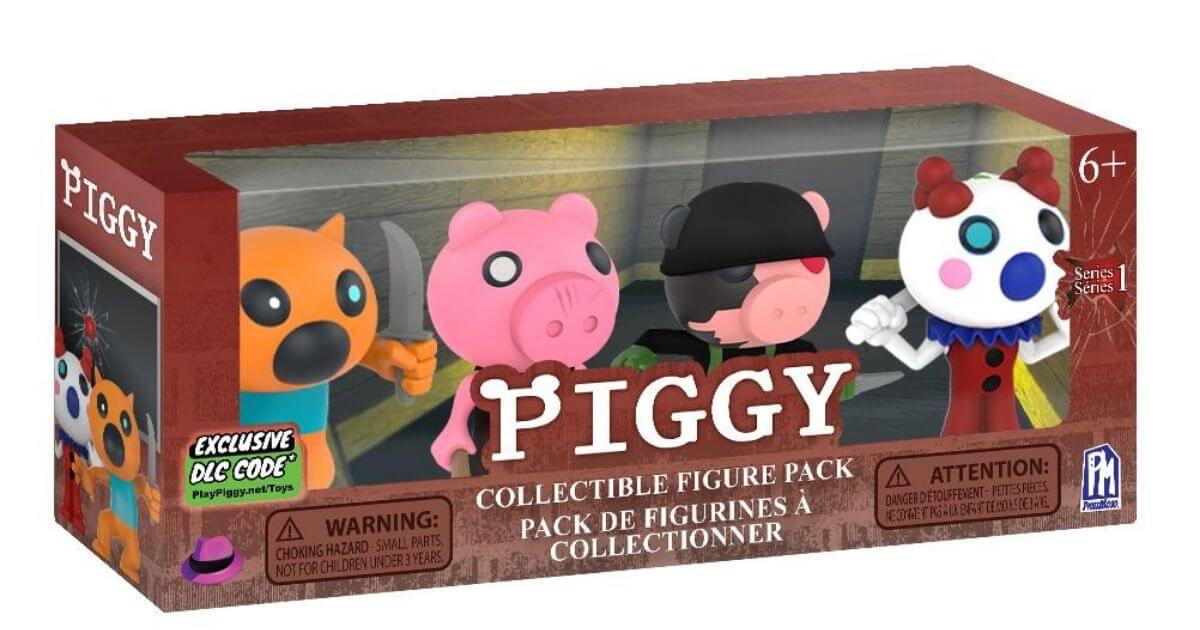
IP Owners Look to Leverage and Control Roblox Community
Roblox was first released for PCs in 2006 and emerged on Xbox nine years later. But during the global pandemic, it surged in popularity and as of March 31 had 42.1 million daily users (37% higher than a year earlier, as the full effects of the pandemic were just being felt) and 202 million monthly active users. The growth caught the attention of many toymakers as a source for licenses, but carrying the same concerns about unapproved usage of trademarked brands and characters as in other “maker markets.”
Piggy’s Journey
One of the more popular Roblox games, “Piggy”, was initially created in an “inspired by” version that paid homage to both Hasbro’s Peppa Pig and the Swedish horror game “Granny.” But in an unusual twist, Piggy developer MiniToon copyrighted the game last year (reworked to feature its own original characters), in part, to counter others who were copying his creation on Roblox, which then took down the offending games. Minitoon subsequently signed a licensing deal with Phatmojo (figures), which now doubles as its licensing agent, and Mad Engine, whose apparel based on Piggy is being sold through Kohl’s and other retailers.
Toymakers have seized upon Roblox as a way to cultivate new customers, even as they’re aware of potential infringements. MGA Entertainment hired SuperAwesome to develop an L.O.L. Surprise-based game that was released in March and Mattel partnered with Gamefam Studios to develop a “Hot Wheels Open World” title that was introduced in November.
“From a marketing standpoint you are getting your brand out there and speaking to a youthful audience,” says one toy company executive. “The question for IP holders is how much control should they exert over those kinds of things, and where do the lines get sharpen or blurred. You want to embrace the platform, but also police it all while avoiding alienating a fan base. And Roblox has to give enough oxygen to developers to be creative while striking a balance between what is good and what is a ripoff.”
A more holistic relationship has recently been forged between Roblox and Hasbro. Hasbro will introduce a Roblox-themed Monopoly board game which will launch in August and is available for pre-order on Entertainment Earth, as well as a line of Roblox-inspired NERF blasters representing “some of the most iconic games on the Roblox platform.” As part of the agreement, each authorized Nerf blaster will have a code that Roblox users can redeem for a virtual version that can be used with their avatar “in the game that inspired it.” Hasbro later this year also will unveil a “Nerf-branded experience” on the Roblox platform.
Roblox has a three-strike system for those that include copyrighted or trademarked content in their games. After the first strike, the developer enters a “remediation” program under which the game can be revised. A third strike results the developer being dropped from the platform.
Yet amid the IP concerns is the quest to get access to the 13 years and under audience Roblox caters to. And while many of the developers are in their late teens or early 20s and game studios are increasingly coming on board, the titles are designed for younger consumers that are potential toy purchasers.
“Two things are clear: kids are spending more time in online games than ever before,” SuperAwesome said in a blogpost that noted in the UK, children are gaming more than eight hours a week. “More importantly, the nature of that time is changing. Rather than being closed, single activity games, major game platforms like Roblox are now social spaces, in which kids play games, connect with friends, consume content, got to events and express themselves.”
Roblox isn’t alone in developing these community-based gaming platforms, which collectively are aimed at forming a Metaverse — a universe of interconnected virtual worlds. But Roblox, along with Fortnite, is among the most advanced in terms of licensing. There are other platforms similar to Roblox on which users create games – Manticore’s Core and Animoca Brands’ The Sandlot – but both are aimed at a older audiences and have yet to be targeted for licensing. Core integrated Hasbro’s Dungeons & Dragons characters into its games earlier this year.
“The reality is that as the platform gets more sophisticated and they desire to age up, Roblox itself will likely never be a licensing platform,” says a licensing agent that is working with developers. “If you are a developer on the platform and want to make a game using someone’s IP, you can go get a license and your distribution will eventually be on every platform” as part of a metaverse.

















